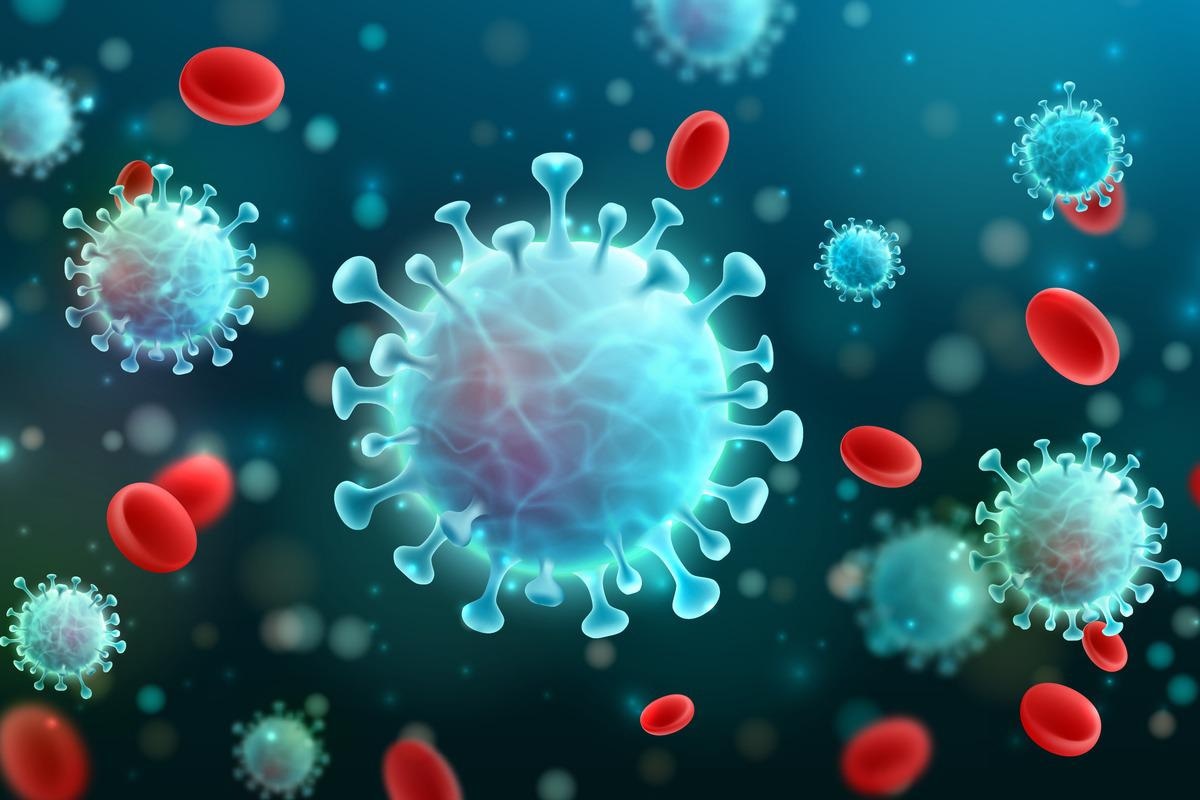The coronavirus disease 2019 (COVID-19) pandemic has spread to nearly every country in the world and has caused over 5.8 million deaths as well as significant economic crises. Many countries were forced to enact costly and restrictive measures to help reduce the rapid pace of transmission of severe acute respiratory syndrome coronavirus 2 (SARS-CoV-2) – the organism that causes COVID-19.
While the development and mass administration of vaccines allowed many of these measures to be dismantled, the emergence and rise to dominance of new variants of concern continue to be an issue - particularly as many show the ability to evade both natural and vaccine-induced immunity. Researchers from the Laboratory of Virology have been investigating the reinfection of different variants in Syrian hamsters and have published their results in Cell Reports.
 Study: SARS-CoV-2 reinfection prevents acute respiratory disease in Syrian hamsters but not replication in the upper respiratory tract. Image Credit: Fotomay/Shutterstock
Study: SARS-CoV-2 reinfection prevents acute respiratory disease in Syrian hamsters but not replication in the upper respiratory tract. Image Credit: Fotomay/Shutterstock
The study
Primary infection models were established in Syrian hamsters with both the Alpha and Beta variants of concern, comparing them to the original WA1 strain. Six animals at a time were intranasally infected with the 1e3 Tissue Culture Infective Dose (TCID)50 of each variant and then monitored for weight loss and other clinical signs over the next five days. It was found that the mice infected with the Beta variant lost significantly less weight, about 1.6% of total body weight on average, than those infected with the other two variants, with mice infected with WA.1 and Alpha losing 5.2% and 7.0%, respectively.
All groups showed other, minor signs of disease such as ruffled fur and hunched posture. At 3 days post-infection oral swabs were collected, and at 5 days lung tissue was harvested as well. Analysis for vRNA using subgenomic (sg) polymerase chain reaction (PCR) and TCID50 assays showed comparable levels of sgRNA in samples from oral swabs from each of the three variants, but infectious viral titers were higher for those infected with the Beta strain. When examining the lung tissue, researchers noticed significantly lower sgRNA and infectious viral titers in those infected with the WA.1 strain.
When examining the histopathology of the infected mice, lesions from the lungs of mice infected with the Alpha and Beta strains tended to consist of moderate to severe broncho-interstitial pneumonia focused on terminal airways – similar to what is described for WA1 infections. Immunoreactivity to SARS-CoV-2 antigens was observed in type I pneumocytes and pulmonary macrophages, as well as type II pneumocytes and bronchiolar epithelial cells. Both variants showed increased pathology compared to the wild-type in the lower respiratory tract.
After this, a cohort of hamsters were infected intranasally with 200 times the previous dose, with oral and lung samples taken at the same times as previously. Three of these animals were euthanized at day 5, while the rest were allowed to recover for either 14, 49 or 152 days post-infection before attempted reinfection. This experiment was performed solely with WA.1 Three hamsters were euthanized for each group on the day of reinfection to establish a baseline. The results showed that the initial infection induced rapid antibody responses that lasted for a significant period of time, with very little decrease detected over time. While antibody titers did increase following reinfection, there were no boosting effects seen for neutralizing antibodies. This contrasts with data seen in humans, where significant decreases in antibody titers were seen only three weeks post-vaccination.
The reinfection did not cause any significant signs of disease, with hamsters showing no weight loss or any physiological symptoms. However, when the oral swabs and lung samples were investigated, the researchers did find significant evidence of viral replication, with infectious virus present in the lungs of re-infected animals, but none in the baseline controls. Luckily, this appears to be short-lived, and does not cause disease. There was also no evidence of renewed lung pathology following reinfection. These experiments were followed with very similar investigations examining reinfection with the Beta variant, which did result in boosted antibody responses and signs of viral replication but again did not lead to renewed disease or lung pathology.
Conclusion
The authors have shown that while hamsters are susceptible to reinfection while recovering from a primary SARS-CoV-2 infection, this does not seem to result in disease or any significant pulmonary pathology - however, viral replication during this phase could result in transmission. As new variants continue to show the ability to infect both vaccinated and previously infected individuals, it is important to understand the severity of these infections, and this research is an important step in furthering that understanding.
Journal reference:
- Frederick Hansen, Kimberly Meade-White, Chad Clancy, Rebecca Rosenke, Atsushi Okumura, David W. Hawman, Friederike Feldmann, Benjamin Kaza, Michael A. Jarvis, Kyle Rosenke, Heinz Feldmann. (2022). SARS-CoV-2 reinfection prevents acute respiratory disease in Syrian hamsters but not replication in the upper respiratory tract. Cell Reports. doi: https://doi.org/10.1016/j.celrep.2022.110515 https://www.sciencedirect.com/science/article/pii/S2211124722002510